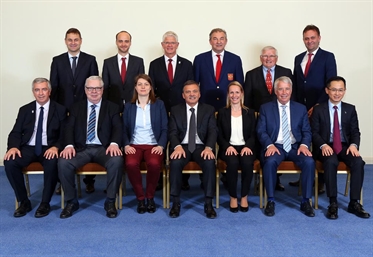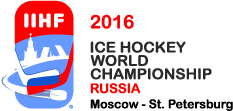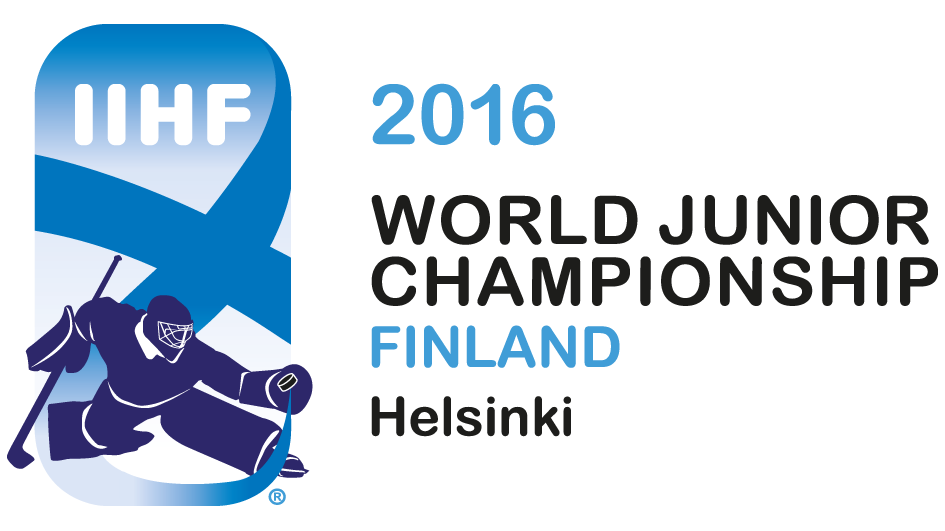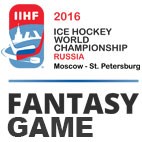Council elected
Council elected
Four-year term begins for IIHF leadership

 IIHF Council 2016-2020. Front row L-R: Luc Tardif, Kalervo Kummola, Marta Zawadzka, Rene Fasel, Zsuzsanna Kolbenheyer, Bob Nicholson, Thomas Wu. Standing L-R: Petr Briza, Sergej Gontcharov, Franz Reindl, Vladislav Tretiak, Ron DeGregorio, Henrik Bach Nielsen. Photo: Andre Ringuette / HHOF-IIHF Images
IIHF Council 2016-2020. Front row L-R: Luc Tardif, Kalervo Kummola, Marta Zawadzka, Rene Fasel, Zsuzsanna Kolbenheyer, Bob Nicholson, Thomas Wu. Standing L-R: Petr Briza, Sergej Gontcharov, Franz Reindl, Vladislav Tretiak, Ron DeGregorio, Henrik Bach Nielsen. Photo: Andre Ringuette / HHOF-IIHF Images
The executive of the International Ice Hockey Federation includes 13 voting members and the General Secretary, Horst Lichtner, as a non-voting member. And the race for the places has been very tight in the end.
The elections began the applications for the President and the three Vice Presidents. Rene Fasel was the only applicant to serve as President and was unanimously elected to serve a new four-year term in the position. The same with the three Vice Presidents: Kalervo Kummola will continue his mandate as Vice President representing Europe and Africa, Bob Nicholson for the Americas and Thomas Wu for Asia and Oceania. Chunlu Wang from China withdrew her application.
“The success of international ice hockey has been achieved thanks to consensus among stakeholders. Consent and finding compromises are important and our strategy won’t change for the new term,” Fasel said in his opening speech and underlined the goal to continue with NHL participation at the Olympic Winter Games for the sixth consecutive time, the Champions Hockey League that concluded its second season, ice hockey in Asia and the growth of women’s hockey.
“In Asia we were given the golden opportunity to grow the game with the 2018 Olympic Winter Games in Korea and the 2022 Olympic Winter Games in China,” Fasel said.
“We have two Olympic Games upcoming in Asia. Asia is a very big continent with a big population and I’m happy to continue to serve as a bridge and make hockey better known in Asia. It’s an exciting time for hockey in Asia,” Thomas Wu added.
A point Fasel outlined in particular was player safety.
“It influences whether a child will pick up a hockey stick for the first time and whether professional players can end their careers in a way they don’t regret having played the sport,” the President said mentioning concussions have to be taken serious. Hits against the head have to be sanctioned harder and all stakeholders have to continue the improvement of the equipment and rinks.
“We are not thinking of changing the culture of the sport or the elements that make the game exciting.”
“I thank you for the confidence you gave to me to serve one more term. After resigning as the President for the Finnish Ice Hockey Association recently I have more time to work in international ice hockey. We have challenges in international ice hockey but we can find solutions,” Kummola said after being confirmed as Vice President.
“It’s an absolute privilege to represent the International Ice Hockey Federation again. We have to make sure young boys and girls play and that we put programs together whether you’re a large or a small nation in a healthy and safe environment,” Nicholson said after being elected for a second term as Vice President.
Next was the election of the statutory minimum of two female Council members with three candidates running for the vacancies. Returning Council member Zsuzsanna Kolbenheyer was re-elected with the best result.
Four years ago she came in as a new member having mostly been known as a long-time Hungarian national team player and chairing women’s hockey in her country. After four years and being better known in her new environment she’s happy to continue serving on the Council and continue developing the women’s game.
Marta Zawadzka was elected as a new Council member. She has been a board member and delegate for the Polish Ice Hockey Association for the last four years.
“I’m proud to be a member of this hockey family. My father was a hockey referee and thanks to him I learned all the rules and became passionate to play the game,” Zawadzka said in her speech.
As the last and largest part the seven additional voting members of the Council were elected with 14 applicants including five members from the previous term.
A new member, German Ice Hockey Association President Franz Reindl, got the most votes from the membership.
“Hockey is my passion. My three leading credentials are experience, affiliation and team work,” Reindl started his presentation. “My whole career was marked by great teammates, employees and team work.”
A former national team player and 1976 Olympic bronze medallist, Reindl has worked as an administrator for the German Ice Hockey Association for 20 years. He was the General Secretary until becoming President in 2014, has been working in IIHF committees for 18 years, as a General Secretary for two World Championship organizing committees (2001, 2010) and as the President and CEO of the 2017 Worlds. He was appointed as Chairman of the Disciplinary Panel in Sochi 2014 and as President for Team Europe at the 2016 World Cup of Hockey.
Vladislav Tretiak, the President of the Ice Hockey Federation of Russia and well known as a goalie legend, got the highest number of votes from the re-elected male members.
In his speech he remembered how millions of fans are enjoying the World Championship in Russia and he thanked for the trust put in the Ice Hockey Federation of Russia for hosting the event. After having been a professional athlete for so many years and serving his first term on the IIHF Council he’s pleased to continue representing Russia in the Council.
Luc Tardif from France was the next re-elected member. He’s the President of the French Ice Hockey Federation, a former hockey player who emigrated from Canada to France in the ‘70s, the commercial director of a big French building company and a hockey dad. He was on the board of the French Ice Sports Federation until ice hockey became independent in 2006 when he became the President of the French Ice Hockey Federation. He has also served as Treasurer for the IIHF and was named Chef de Mission for France in Sochi 2014 and PyeongChang 2018.
“The financial situation of the IIHF is better than four years ago. The income increased. Despite having to reduce costs the IIHF Ice Hockey World Championship structure could be kept for all categories and division. For the next four years my goal is to consolidate the financial stability and pursue financial transparency,” he said.
Henrik Bach Nielsen, the President of the Danish Ice Hockey Federation, was elected for a second term as well.
“Like all of you I love our sport and getting new players in new countries is a goal but I see also great potential in our member countries. I’m from a so-called small country. With Denmark we saw how it is to play with the big boys and what it needs to become stronger. Denmark is a testament to the fact that the bumble bee can fly and that we can provide the help to make it fly,” he said.
“We need to be partners with the bigger and smaller nations and have the doors open to make such a journey possible and to benefit all. In my new term I want to continue my work to formalizing a mentoring program.”
The second new member to join the IIHF Council will be the youngest one: 32-year-old Sergej Gontcharov, who was nominated by the Belarusian Ice Hockey Association where he serves as a board member and previously as the general secretary. Gontcharov, who grew up in Germany, has also been working in Ukraine as CEO of the bidding committee for the 2022 Olympic Winter Games for Lviv and as an advisor to Sergei Bubka, the Ukrainian IOC Executive Board member and President of the National Olympic Committee.
“Yes, I’m young and that’s good. It’s important to understand the needs of young people and of technology,” he started his presentation.
“Despite the youth I’m also experienced and I have a strong network not only within hockey but within the Olympic movement,” added Gontcharov, who fell in love with hockey when the 1993 IIHF Ice Hockey World Championship was hosted in Germany.
“We need to have more players in more countries to play ice hockey. We need to realize the potential markets. There are hundreds of millions of people in countries where we can make ice hockey a bigger sport in the lower divisions. It must be in the interest of the bigger nations that smaller nations come closer to their level. Being elected doesn’t mean mission accomplished, it means the work starts. Let’s help each other and make hockey a truly global sport,” he said and hopes to repeat the success story basketball has had in China with the 2008 Summer Olympics in Beijing where the 2022 Winter Olympics will be held.
Ron DeGregorio from the United States has been elected and follows after fellow countryman Tony Rossi, who retired from his position with the Council. The former player, coach, owner of an AHL franchise has served as an administrator for USA Hockey for 12 years, until 2015 as the President. He mentioned how not only the U.S. is helping bigger countries but also how he learned to run his own members in the various states thanks to the experiences in the IIHF.
“I hope my knowledge both in hockey, business and the financial side will help the IIHF. Working together is the crucial thing to move forward internationally but we have to move forward with mutual respect. Together we will grow,” DeGregorio said.
That meant one place was open in a very tight race. Four candidates were only two points apart for the last open position and two of them, Petr Briza and Peter Forsberg, even had the same number of votes, 44. The casting vote decided in Briza’s favour with 57-39 votes.
“I was very proud to represent my country in World Championships and Olympics Games,” the former goalie said and is thrilled to become the first Czech IIHF Council member since the late Miroslav Subrt, “who served for unbelievable 44 years”.
Briza is the General Manager of Sparta Prague, one of the biggest Czech clubs, a board member of the Czech Ice Hockey Association and of the Champions Hockey League, and has served as a member of the IIHF Co-ordination Committee.
“It has been great ten years working as an administrator internationally and we had an amazing World Championship in the Czech Republic one year ago with a record attendance and good financial figures. Even one year after I’m still very proud to have worked on this success,” he said.
“We have to help middle and small countries to make them much stronger and help create new sport infrastructure and bring more kids to the rinks.”
The 2016 IIHF Annual Congress also elected two IIHF Auditors for a four-year term. Outgoing Council member Christer Englund, who didn’t run for re-election after retiring as President of the Swedish Ice Hockey Association, was elected and Fabio Oetterli was re-elected in this position.
Elections for the IIHF Council 2016-2020
IIHF President:
Rene Fasel, Switzerland, unanimous vote
IIHF Vice Presidents:
Kalervo Kummola, Finland, unanimous vote
Bob Nicholson, Canada, unanimous vote
Thomas Wu, Hong Kong, unanimous vote
Withdrawal:
Chunlu (Lucy) Wang, China
IIHF Council members (female):
Zsuzsanna Kolbenheyer, Hungary, 77 votes
Marta Zawadzka, Poland, 63 votes
Not elected:
Monique Scheier-Schneider, Luxembourg
IIHF Council members (male and female):
Franz Reindl, Germany , 81
Vladislav Tretiak, Russia, 78
Luc Tardif, France, 72
Henrik Bach Nielsen, Denmark, 70
Sergej Gontcharov, Belarus, 52
Ron DeGregorio, USA, 46
Petr Briza, Czech Republic, 44
Not elected:
Peter Forsberg, Sweden
Igor Nemecek, Slovakia
Frank Gonzalez, Spain
Matjaz Rakovec, Slovenia
Vidar Gardarsson, Iceland
Joaquin de la Garma, Mexico
Robert van Rijswijk, Netherlands
Withdrawal:
Monique Scheier-Schneider, Luxembourg
IIHF Auditors:
Christer Englund, Sweden, 78 votes
Fabio Oetterli, Switzerland, 68 votes
Not elected:
Andrea Gios, Italy
Back to Overview














































































